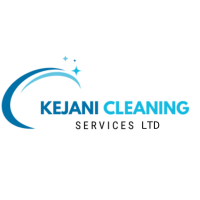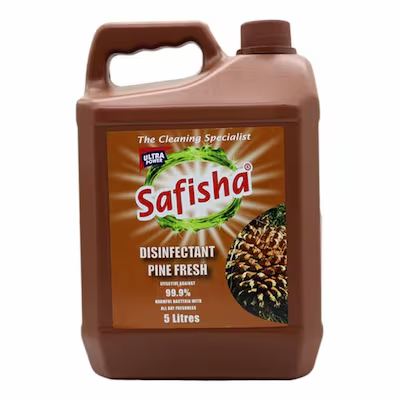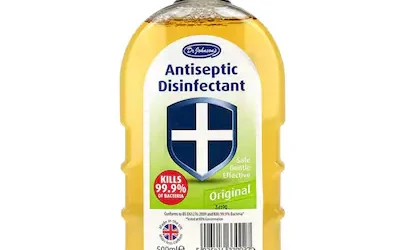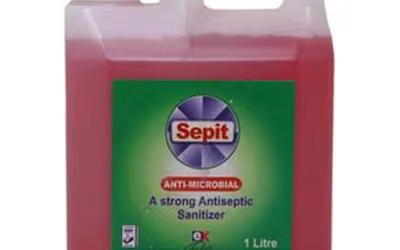🧼 Introduction: Why You Need to Know What’s in Your Disinfectants
Disinfectants are a vital part of our cleaning routine—used in homes, hospitals, schools, food production areas, and more. But how much do we really know about them?
-
Are they always safe?
-
Can they be used on skin?
-
Do they kill all germs—even the most stubborn?
-
Are they acidic, alkaline, or neutral?
-
Are most of them chlorine-based?
Let’s explore what disinfectants are, how they work, and how to use them safely—especially if you’re managing a business, cleaning company, or household.
✅ Are Disinfectants Safe?
Short Answer: Yes—when used properly.
Disinfectants are generally safe when diluted correctly and used according to the manufacturer’s instructions. Problems arise when:
-
The product is too concentrated
-
Used in poorly ventilated areas
-
Mixed with other chemicals (like bleach and ammonia)
-
Or applied on inappropriate surfaces or skin
Safety Tips:
-
Always read the label and MSDS (Material Safety Data Sheet)
-
Use gloves when necessary
-
Avoid inhalation—ensure good ventilation
-
Keep away from children and pets
⚠️ Are Disinfectants Hazardous?
Short Answer: They can be hazardous in concentrated forms or if misused.
Some disinfectants contain strong chemicals like quaternary ammonium compounds, phenols, alcohols, chlorine, or peroxides, which can:
-
Cause skin or eye irritation
-
Release harmful fumes when mixed
-
Damage surfaces (especially wood, electronics, fabrics)
High-risk disinfectants include:
-
Industrial-grade bleach
-
Hydrogen peroxide (over 6%)
-
Formaldehyde-based products
Tip: If using commercial disinfectants for cleaning services, always provide PPE and training to staff.
🦠 Can Disinfectants Kill Endospores?
Short Answer: Most regular disinfectants cannot.
Endospores—produced by bacteria like Clostridium difficile or Bacillus anthracis—are highly resistant to:
-
Heat
-
Radiation
-
Standard disinfectants
To kill endospores, you need high-level disinfectants or sterilants, such as:
-
Glutaraldehyde
-
Peracetic acid
-
Hydrogen peroxide vapor
-
Autoclaving (steam sterilization)
💡 Hospitals and laboratories use these methods for surgical tools and critical areas.
🖐️ Can Disinfectants Be Used on Skin?
Short Answer: Most disinfectants are not safe for skin.
Disinfectants like bleach, phenol-based, or chlorine-based products are meant for hard, non-porous surfaces—not human skin.
Safe Alternatives:
-
Use antiseptics like alcohol (70% isopropyl or ethanol), chlorhexidine, or hydrogen peroxide (3%) for skin.
-
Look for products labeled “skin-safe” or “hand sanitizers” rather than “disinfectants.”
🧪 Are Disinfectants Acidic or Basic?
Disinfectants can be acidic, neutral, or basic depending on their chemical formulation.
Common pH Ranges:
-
Acidic (pH 1–6): Vinegar-based, citric acid cleaners, some toilet cleaners
-
Neutral (pH 7): Alcohol-based or ready-to-use multipurpose sprays
-
Basic/Alkaline (pH 8–13): Bleach, ammonia, and many degreasers
Why It Matters:
-
Acidic disinfectants can corrode metal or damage marble/granite.
-
Alkaline disinfectants may irritate skin or strip painted surfaces.
🧂 Are Disinfectants Chlorine-Based?
Many disinfectants are chlorine-based—especially those used for:
-
Hospitals
-
Food processing
-
Water treatment
-
Public washrooms
Examples:
-
Sodium hypochlorite (bleach) – Common and effective
-
Calcium hypochlorite – Used in swimming pools
-
Chlorine dioxide – Used in some fogging or fumigation systems
🧼 Chlorine-based disinfectants are very effective but:
-
Lose potency quickly
-
Are corrosive if concentrated
-
Must be diluted accurately
📌 Summary Table
| Question | Answer |
|---|---|
| Are disinfectants safe? | Yes, when used properly and with PPE |
| Are disinfectants hazardous? | Can be, if concentrated or misused |
| Can disinfectants kill endospores? | Only high-level disinfectants or sterilants |
| Can disinfectants be used on skin? | No. Use antiseptics instead |
| Are disinfectants acidic or basic? | Varies—can be acidic, neutral, or basic |
| Are disinfectants chlorine-based? | Many are, especially for commercial or hospital use |
🙋♂️ FAQ
Q: Can I use bleach to disinfect baby toys?
A: Only if properly diluted (usually 1:50), rinsed well with clean water, and left to air dry. Never use bleach directly on baby items.
Q: Can disinfectants cause respiratory problems?
A: Yes, especially in enclosed spaces or when mixed with other chemicals. Always ventilate and wear a mask if necessary.
Q: What’s the safest disinfectant for household use?
A: Alcohol-based disinfectants (over 70%) or hydrogen peroxide (3%) are safe and effective for most surfaces.
🚚 Looking for Safe and Effective Disinfectants in Kenya?
At Kejani Cleaning, we stock:
-
Alcohol-based disinfectants
-
Chlorine tablets and bleach
-
Fogging and fumigation disinfectants
🛒 Shop online: https://kejanicleaning.co.ke
📦 Nationwide delivery available
📞 Call for bulk and wholesale orders: +254 115 887 085




0 Comments